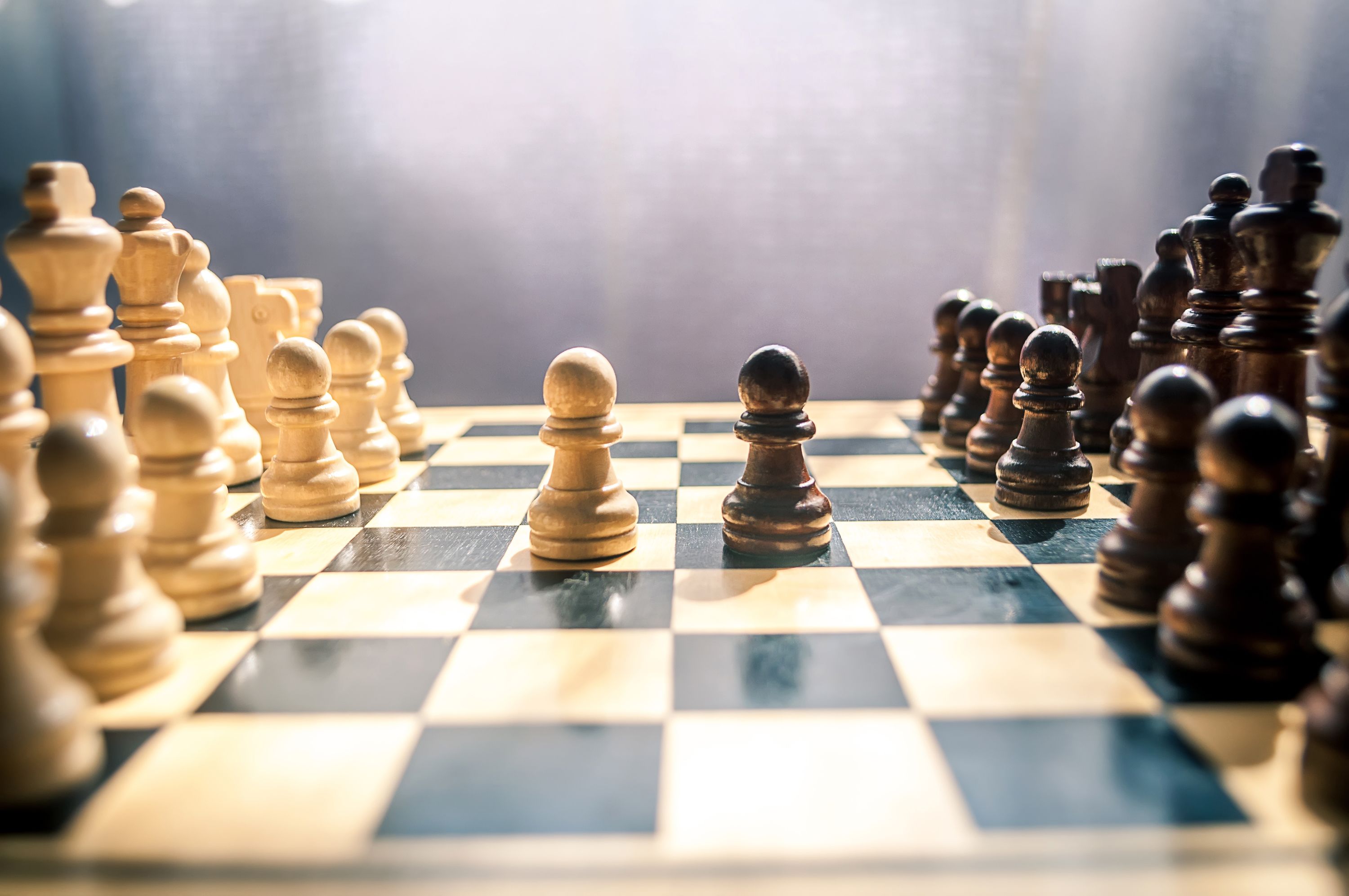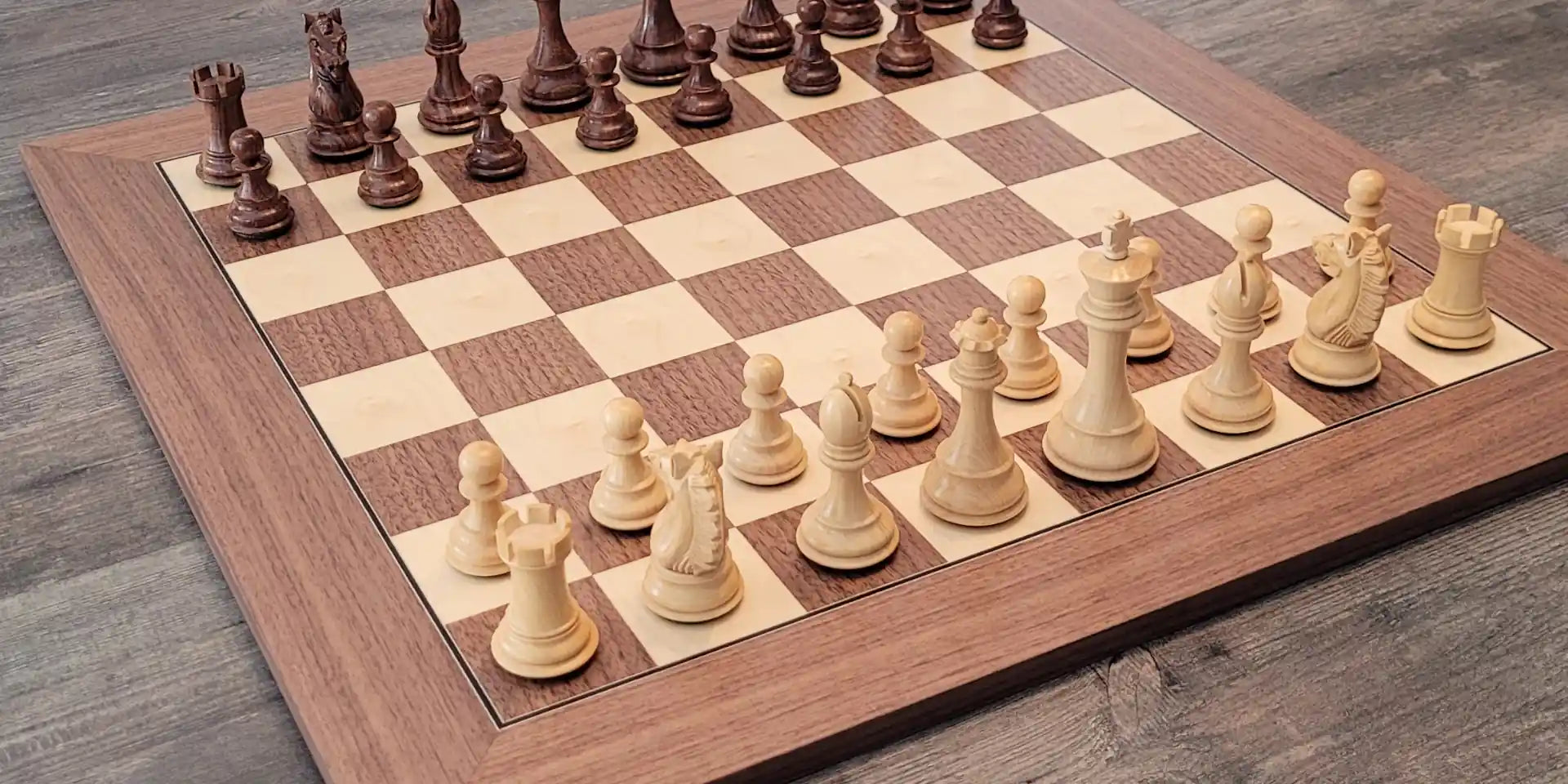Chess Endgame Blunders You Should Avoid
Wiki Article
Why You Have To Play Chess: The Advantages of Taking Part In This Timeless Intellectual Obstacle
Chess is greater than a simple game; it offers as an extensive mental workout that develops numerous cognitive abilities. Players engage in critical thinking and establish analytical abilities, which can have enduring benefits in everyday life. The discipline required for enhancement promotes persistence and strength. Yet, the true essence of chess lies not just in its intellectual needs but in the links it promotes within a neighborhood. Checking out these measurements discloses much about why chess stays timeless.Enhancing Cognitive Skills
Playing chess substantially improves cognitive skills, making it a beneficial activity for people of all ages. The video game demands tactical thinking and insight, needing gamers to expect their challenger's relocations while creating a winning method. This mental workout develops focus and focus, essential elements of cognitive function.
Additionally, chess encourages creative thinking, prompting gamers to check out innovative tactics and unusual techniques to the game. As they browse the chessboard, individuals create persistence and resilience, important features for cognitive growth. In general, the multifaceted cognitive advantages of chess make it an enhancing pursuit, promoting long-lasting imagination and intellectual engagement.
Improving Problem-Solving Talents
Many researches have shown that taking part in chess can considerably boost problem-solving capabilities. The game needs players to analyze intricate placements and prepare for the challenger's actions, fostering important believing abilities. As they navigate different circumstances, chess gamers create the ability to review several outcomes and make calculated decisions under stress. This process improves their capacity to method real-life issues with an organized attitude.Moreover, chess promotes the recognition of patterns and the application of sensible reasoning, skills that are necessary in efficient problem-solving. Gamers learn to examine risks and incentives, fine-tuning their judgment in unpredictable situations. The repetitive nature of chess play reinforces these abilities, allowing people to transfer their boosted analytic capacities to scholastic and specialist contexts. Ultimately, chess acts as a beneficial tool for anybody looking for to hone their logical abilities and improve their total cognitive functioning in tough scenarios.
Cultivating Perseverance and Discipline
While engaging in chess can be an exciting experience, it likewise calls for a significant degree of perseverance and self-control. Players must find out to very carefully take into consideration each step, considering possible outcomes and approaches. This thoughtful approach cultivates a mindset that values long-term success over prompt satisfaction. In chess, rash choices often cause unfavorable consequences, reinforcing the importance of taking one's time to evaluate the board and anticipate a challenger's feedbacks.
Self-control is further grown with regular practice and study. Gamers usually commit hours to enhancing their abilities, researching techniques, and assessing previous games. This commitment to understanding the game instills a sense of duty and willpower, necessary attributes that prolong past the chessboard. Ultimately, the combination of perseverance and self-control not only boosts a player's chess capacities yet likewise adds to individual development, equipping people with vital devices for maneuvering obstacles in numerous aspects of life.
Promoting Creative Thinking and Creative Imagination

Strategizing actions entails not just reasoning yet also the ability to anticipate a challenger's reactions, encouraging gamers to envision several pathways and choices. As gamers trying out various tactics, they discover to innovate and adapt, boosting their imaginative problem-solving abilities.
The video game's intricacy invites players to explore unconventional concepts and techniques, leading to personal styles of play - Chess. This exploration supports a feeling of imaginative expression, as each player crafts their own technique to difficulties on the board. Ultimately, chess becomes a canvas for creativity, permitting individuals to express their unique point of views while developing their imaginative capabilities
go to my site
Structure Social Connections and Community
Playing chess provides chances for individuals to network through competitions and neighborhood chess clubs. These settings promote links among players, producing a feeling of recreation center around a shared enthusiasm. Participating in these tasks not only enhances skills yet likewise constructs long lasting connections.Networking Via Tournaments
When participants take part in chess tournaments, they frequently find themselves immersed in a vivid area of like-minded individuals. These occasions give an excellent system for gamers to build connections, share techniques, and celebrate their passion for the game. Engaging in pleasant competitors cultivates sociability, as players from diverse histories collaborated to test each other. Networking opportunities abound, with lots of participants developing long-term relationships that extend beyond the chessboard. Furthermore, these tournaments usually bring in enrollers and chess lovers, better boosting the possibility for expert links. As gamers engage in discussions regarding tactics and experiences, they develop a network that can bring about future partnerships and possibilities within the chess world and past.Local Chess Clubs

my latest blog post
Providing an Enjoyable and Engaging Challenge
Chess uses a distinctively promoting experience that astounds gamers of every ages, as it incorporates critical reasoning with the excitement of competition. This timeless game presents an engaging difficulty, urging people to assume seriously and creatively. Each suit unravels as a battle of wits, where players have to expect their challenger's steps while designing their own approaches.The intellectual engagement chess provides is matched by its capacity to entertain. Players typically discover themselves immersed in the game, shedding track of time as they browse intricate positions and tactical problems (Chess). This heightened emphasis cultivates a sense of success, especially when a difficult action leads to triumph
Chess promotes social communication, allowing gamers to bond over common experiences and difficulties. The video game's unlimited variations guarantee that no two sessions are alike, maintaining individuals passionate to refine their skills and techniques. This dynamic blend of obstacle and pleasure makes chess an alluring search.
Regularly Asked Questions
Can Chess Be Played Online or in Person?
Chess can be played both online and personally. On the internet systems supply players the benefit of contending against opponents worldwide, while in-person games cultivate social interaction and physical existence, enhancing the overall experience.What Age Is Finest to Start Knowing Chess?
Experts recommend that children can start discovering chess as early as age 5 or six. web link At this age, they can comprehend fundamental principles, improving cognitive skills while fostering a love for the video game that lasts a lifetime.Are There Chess Tournaments for Beginners?
Yes, there are chess events especially created for newbies. These occasions supply a supportive atmosphere for newbie players to obtain experience, improve their abilities, and take pleasure in the affordable spirit of chess without dealing with sophisticated opponents.For how long Does It Require To Become Skilled at Chess?
Coming to be skillful at chess usually needs regular method over numerous months to years. Variables such as individual devotion, previous experience, and research study of techniques greatly influence the time required to get to a proficient degree.What Resources Are Offered for Knowing Chess Strategies?
Many resources exist for finding out chess strategies, including online tutorials, books by prominent authors, chess apps, and interactive web sites. Several gamers additionally gain from signing up with neighborhood clubs or taking part in on the internet discussion forums for real-time understandings.Report this wiki page